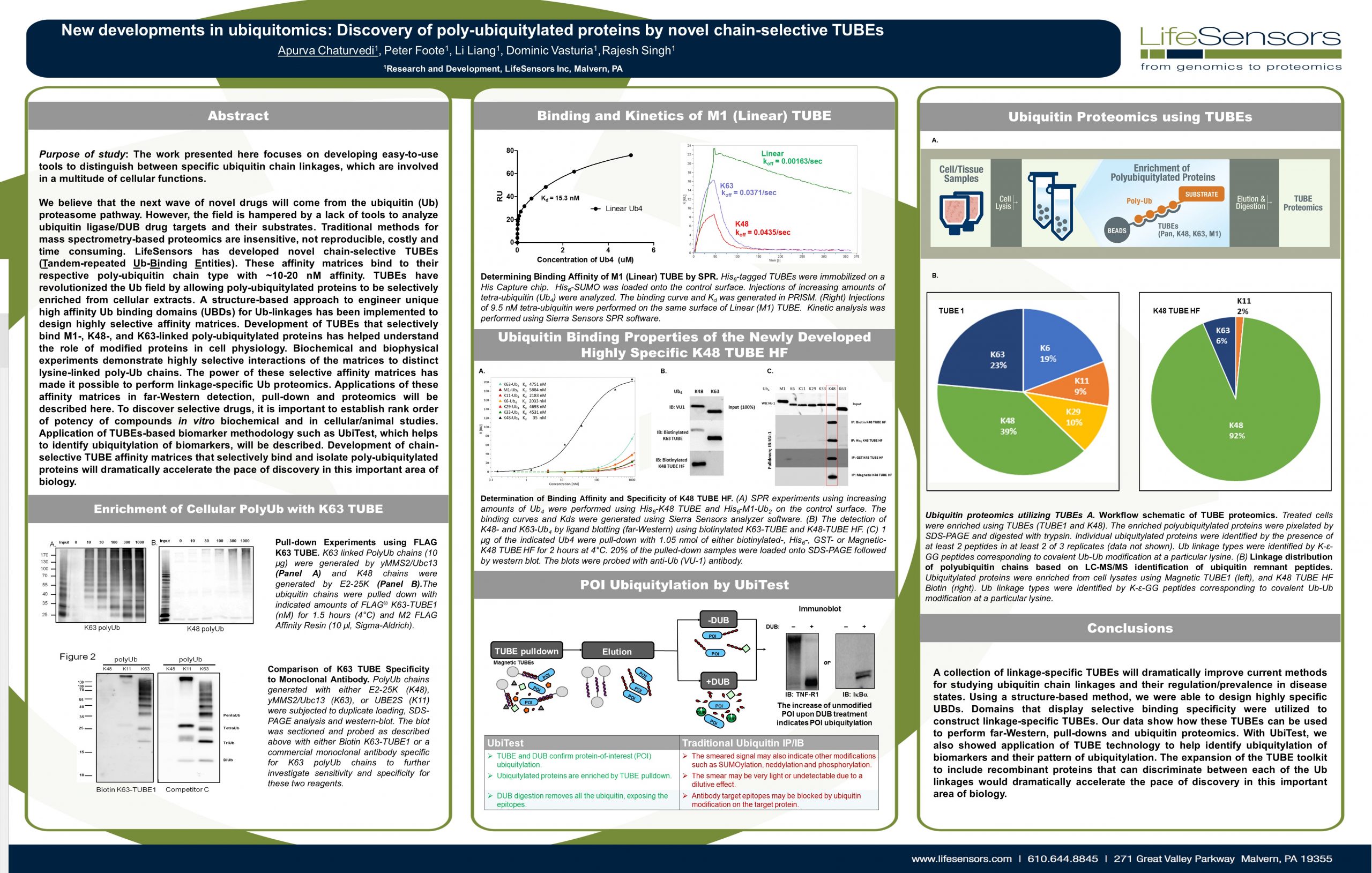
LifeSensors Scientists Apurva Chaturvedi, Peter Foote, Li Liang, Dominic Vasturia, and Rajesh Singh recently presented research at FASEB in SnowMass, Colorado. A downloadable PDF of this poster can be found here.
ABSTRACT
The work presented here focuses on developing easy-to-use tools to distinguish between specific ubiquitin chain linkages, which are involved in a multitude of cellular functions. We believe that the next wave of novel drugs will come from the ubiquitin (Ub) proteasome pathway. However, the field is hampered by a lack of tools to analyze ubiquitin ligase/DUB drug targets and their substrates. Traditional methods for mass spectrometry-based proteomics are insensitive, not reproducible, costly and time consuming. LifeSensors has developed novel chain-selective TUBEs (Tandem-repeated Ub-Binding Entities). These affinity matrices bind to their respective poly-ubiquitin chain type with ~10-20 nM affinity. TUBEs have revolutionized the Ub field by allowing poly-ubiquitylated proteins to be selectively enriched from cellular extracts. A structure-based approach to engineer unique high affinity Ub binding domains (UBDs) for Ub-linkages has been implemented to design highly selective affinity matrices. Development of TUBEs that selectively bind M1-, K48-, and K63-linked poly-ubiquitylated proteins has helped understand the role of modified proteins in cell physiology. Biochemical and biophysical experiments demonstrate highly selective interactions of the matrices to distinct lysine-linked poly-Ub chains. The power of these selective affinity matrices has made it possible to perform linkage-specific Ub proteomics. Applications of these affinity matrices in far-Western detection, pull-down and proteomics will be described here. To discover selective drugs, it is important to establish rank order of potency of compounds in vitro biochemical and in cellular/animal studies. Application of TUBEs-based biomarker methodology such as UbiTest, which helps to identify ubiquitylation of biomarkers, will be described. Development of chainselective TUBE affinity matrices that selectively bind and isolate poly-ubiquitylated proteins will dramatically accelerate the pace of discovery in this important area of biology.
